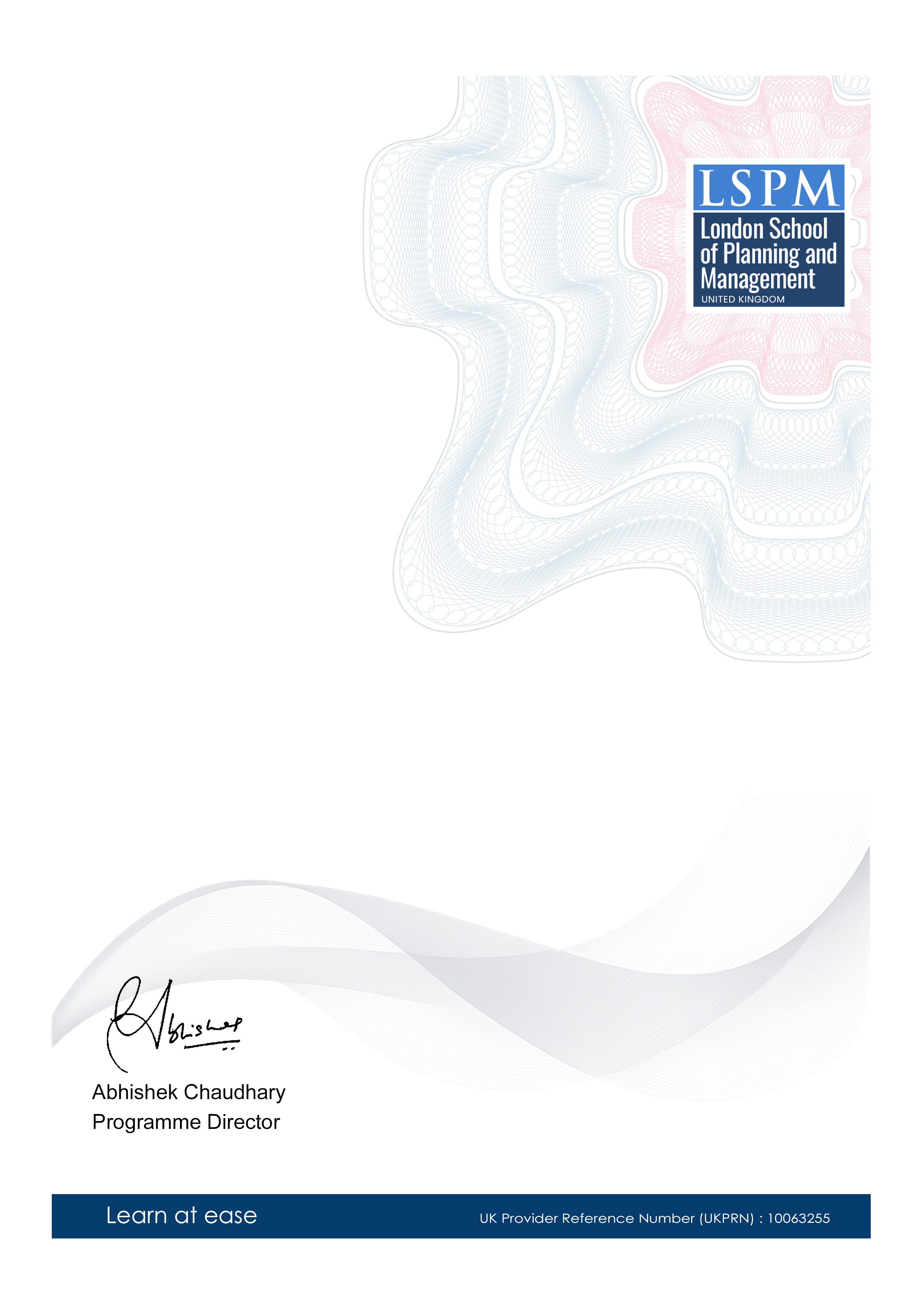Case Study: Postgraduate Diploma in Business Management for the Environment and Land-based Sector as a Pathway to Environmental Management
-- viewing nowThe Case Study: Postgraduate Diploma in Business Management for the Environment and Land-based Sector serves as a pathway to the Environmental Management certificate course. This program emphasizes the growing importance of sustainable business practices, particularly in environment and land-based sectors.
4,122+
Students enrolled
GBP £ 149
GBP £ 215
Save 44% with our special offer
About this course
100% online
Learn from anywhere
Shareable certificate
Add to your LinkedIn profile
2 months to complete
at 2-3 hours a week
Start anytime
No waiting period
Course details
• Unit 1: Introduction to Environmental Management in the Land-based Sector: This unit will cover the basics of environmental management within the environment and land-based sector, highlighting the importance of sustainability and biodiversity.
• Unit 2: Policy and Legislation for Environmental Management: This unit will explore the various policies and legislation that impact environmental management in the land-based sector, with a focus on compliance and risk management.
• Unit 3: Business Strategy for Environmental Sustainability: This unit will delve into the role of business strategy in promoting environmental sustainability, including the development and implementation of environmental policies and practices.
• Unit 4: Environmental Impact Assessment: This unit will teach students how to conduct environmental impact assessments for land-based businesses, identifying potential risks and developing strategies to mitigate them.
• Unit 5: Waste Management and Reduction: This unit will focus on best practices for waste management and reduction in the land-based sector, including resource efficiency, recycling, and waste minimization.
• Unit 6: Renewable Energy and Energy Efficiency: This unit will cover renewable energy sources and energy efficiency measures for land-based businesses, including the benefits and challenges of implementing these technologies.
• Unit 7: Biodiversity and Ecosystem Services: This unit will explore the importance of biodiversity and ecosystem services in the land-based sector, including the impacts of land use change and habitat loss.
• Unit 8: Stakeholder Engagement and Communication: This unit will teach students how to engage with stakeholders and communicate effectively about environmental issues, including the use of social media and other digital tools.
• Unit 9: Sustainable Supply Chain Management: This unit will cover the principles of sustainable supply chain management, including sourcing, production, and logistics.
• Unit 10: Monitoring and Evaluation of Environmental Performance: This unit will teach students how to monitor and evaluate environmental performance in the land-based sector, including the use of key performance indicators and data analysis.
Career path
Entry requirements
- Basic understanding of the subject matter
- Proficiency in English language
- Computer and internet access
- Basic computer skills
- Dedication to complete the course
No prior formal qualifications required. Course designed for accessibility.
Course status
This course provides practical knowledge and skills for professional development. It is:
- Not accredited by a recognized body
- Not regulated by an authorized institution
- Complementary to formal qualifications
You'll receive a certificate of completion upon successfully finishing the course.
Why people choose us for their career
Loading reviews...
Frequently Asked Questions
Course fee
- 3-4 hours per week
- Early certificate delivery
- Open enrollment - start anytime
- 2-3 hours per week
- Regular certificate delivery
- Open enrollment - start anytime
- Full course access
- Digital certificate
- Course materials
Get course information
Earn a career certificate

